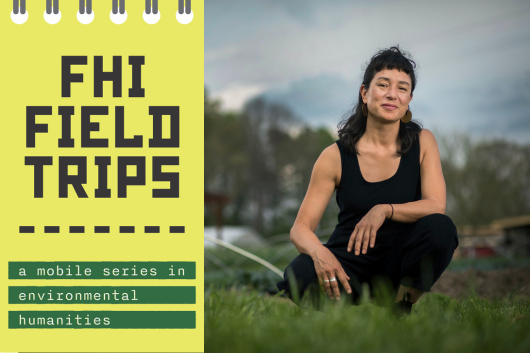FHI Field Trips: Soil as the Archive

The John Hope Franklin Humanities Institute is launching FIELD TRIPS, a new series on current Duke faculty work in environmental humanities. Each Field Trip combines a seminar with an interpretive tour, at a physical site that has shaped the work under discussion. For the series' first year, special attention will be paid to the emerging field of plant studies in the humanities. Space is limited at each event site - sign up here for logistical info and readings.
This field trip and discussion is an on-site introduction to the Duke Campus Farm. At the ground level, this one-acre working farm - owned and operated by Duke and started and powered by students - grows approximately 25,000lbs of organic produce on ¾ acre each season and offers this harvest to those experiencing food insecurity both on and off campus. At its most audacious, the farm also aims to transform the ways we think and teach about climate at Duke, by offering students and community members an embodied experience of repair in the wake of the Plantationocene and climate crisis. What can we learn - and teach - through haptic experience that wouldn't be possible in another way? What are the affordances and constraints of this approach? And what are the limits of ecological repair in addressing or rethinking other forms of harm? We hope for a lively, critical conversation on the farm's work as described in this short piece, Soil as the Archive," and as encountered by the group on-site.
Saskia Cornes is assistant professor of the practice at the John Hope Franklin Humanities Institute at Duke University and Director of the Duke Campus Farm. She holds a PhD in English and Comparative Literature from Columbia University, where her work focused on the emergence of private property as a guiding logic in the culture and agriculture of 17th century England, and as a key point of origin for the climate crisis. A farmer by vocation, she learned regenerative agriculture through a range of apprenticeships, and through post-graduate study at the Center for Agroecology at UC Santa Cruz. In her work now, she weaves teaching, farming, and more traditional forms of research together to rework our relationship to food, and to the land and people that grow it.







